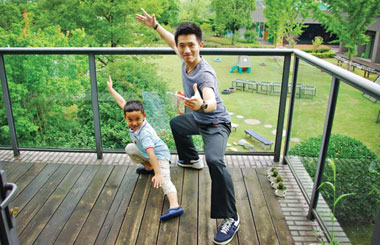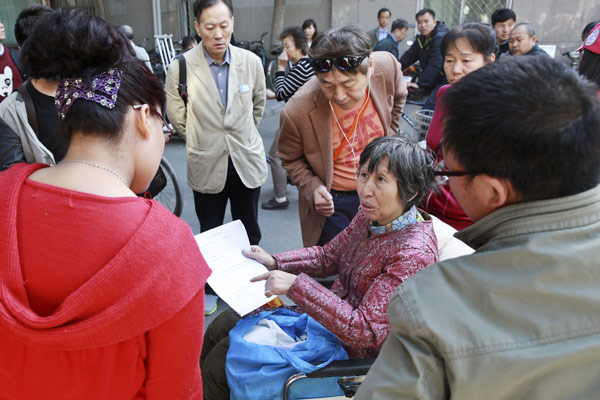Angry patients wait in vain for answers
Updated: 2016-05-07 08:04
By Wang Xiaodong(China Daily)
|
|||||||||
A hospital in Beijing that came under scrutiny after the death of a college student it treated with immunotherapy failed on Friday to respond to dozens of other patients who received similar treatment in the hospital.
According to media reports, the Second Hospital of Beijing Armed Police Corps-which is under investigation following the death on April 12 of cancer patient Wei Zexi, 21-had promised to give patients an explanation on Friday on issues such as whether the therapy was legal and if the department providing it was a subcontracted private company.
"But when we arrived at the hospital in the morning, the gate was closed and nobody came out to explain anything," said a 30-year-old woman who would give only her surname as Liu.
"There are so many patients who have received the therapy waiting for a repose, and many of them are from outside Beijing," she said. "The hospital should at least make some remarks."
However, the hospital opened a center on Friday in a grocery store near its gate for immunotherapy patients or their families to register and later receive a response from the hospital.
The hospital came under public scrutiny after Wei, a student at Xidian University in Xi'an, Shaanxi province, died after receiving immunotherapy at the hospital. Such treatments employ biological techniques to help the patient's immune system fight the illness.
Wei was diagnosed in 2014 with synovial sarcoma, a rare cancer of the soft tissue. His parents said they spent more than 200,000 yuan (about $31,000) for what the hospital called DC-CIK immunotherapy.
China's top health authority, the National Health and Family Planning Commission, reiterated on Thursday that such treatment has not been approved in China and thus is permissible only in research, not for commercial clinical use.
Related Stories
Six health workers killed in Aleppo hospital attacks: WHO 2016-05-06 22:01
Beijing hospital cancer case hits shares 2016-05-06 08:35
Closing loopholes in rule can cure the ills of hospital subcontracting 2016-05-06 08:32
Cancer case hospital closes for investigation 2016-05-05 07:55
Hospital, search engine under investigation after student death 2016-05-03 19:52
Today's Top News
Testing times
Big hopes as China hosts the G20
Inspectors to cover all of military
Britons embrace 'Super Thursday' elections
Campaign spreads Chinese cooking in the UK
Trump to aim all guns at Hillary Clinton
Labour set to take London after bitter campaign
Labour candidate favourite for London mayor
Hot Topics
Lunar probe , China growth forecasts, Emission rules get tougher, China seen through 'colored lens', International board,
Editor's Picks

|

|

|

|

|

|








